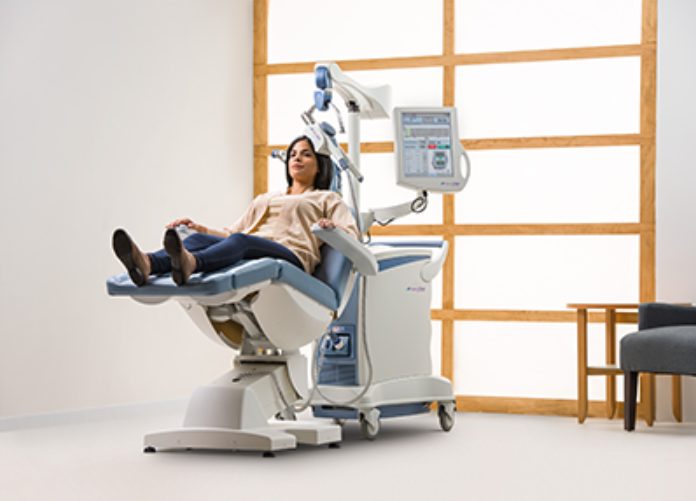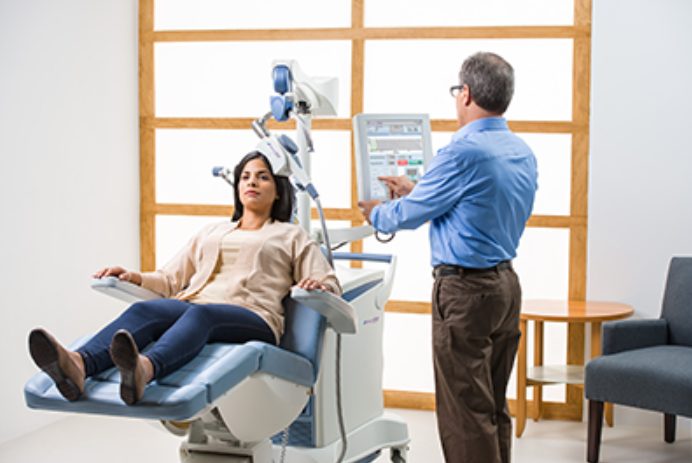
Before treatment
- You’ll recline comfortably in the treatment chair
- A small, curved magnetic coil will be positioned lightly on your head
At Principium Psychiatry, we utilize state of the art technology and have partnered with NeuroStar. To ensure we provide the best results for our patients, we use NeuroStar transcranial magnetic stimulation (TMS) to conduct treatment sessions.
Here’s what you can expect from a NeuroStar Advanced Therapy (TMS) session:



In-office treatment with NeuroStar TMS Therapy takes 19-37 minutes and is administered five days a week for approximately 4-6 weeks.*
Transcranial Magnetic Stimulation, or TMS, is the latest generation of direct brain stimulation therapy for the treatment of depression. Using non-invasive technology, this therapy stimulates the regions of the brain implicated in depression to treat the debilitating symptoms of this condition. TMS does not involve medication and is performed on an outpatient basis. During NeuroStar therapy, a metal coil sends magnetic pulses to certain areas of the brain. These pulses stimulate activity in the affected parts of the brain to aid with mood regulation processes.
As a newer mental health treatment, NeuroStar TMS has plenty of myths surrounding its use and effects. Consider these facts about NeuroStar:
Fact: TMS has more than a decade of evidence supporting its effectiveness and Food and Drug Administration (FDA) approval.
The FDA approved of NeuroStar in 2008 — more than one decade ago. NeuroStar also has the most clinical studies for TMS in depression supporting its treatment effects.
Fact: Most commercial and government health plans will cover NeuroStar therapy for depression.
NeuroStar currently has FDA approval for treating depression, making it eligible for insurance coverage. Your insurance may not cover off-label TMS treatment for conditions such as anxiety.
Fact: TMS resembles a magnetic resonance imaging (MRI) procedure more than it does ECT.
TMS uses magnetic pulses with the same type and strength as those used for MRIs. Unlike ECT, TMS does not require sedation or affect cognition.
Fact: TMS treatments like NeuroStar have fewer side effects than antidepressants, and these tend to involve only minor discomfort.
The most common side effects of NeuroStar therapy include temporary pain and discomfort at the treatment site. About .01% of people have a risk of seizure during TMS.
Fact: NeuroStar treats depression just as effectively as other TMS therapies and there is more data supporting the efficacy of TMS.
Studies show no significant difference between the positive effects of NeuroStar and other TMS therapies on depression. Different TMS therapies may have specific effects on other mental health conditions like OCD. Neurostar TMS is supported by randomized clinical trials involving hundreds of patients.
Patients in New York City rely on the team at Principium for mental health treatment for benefits such as:
Find out if you could benefit from NeuroStar by scheduling an appointment at Principium.